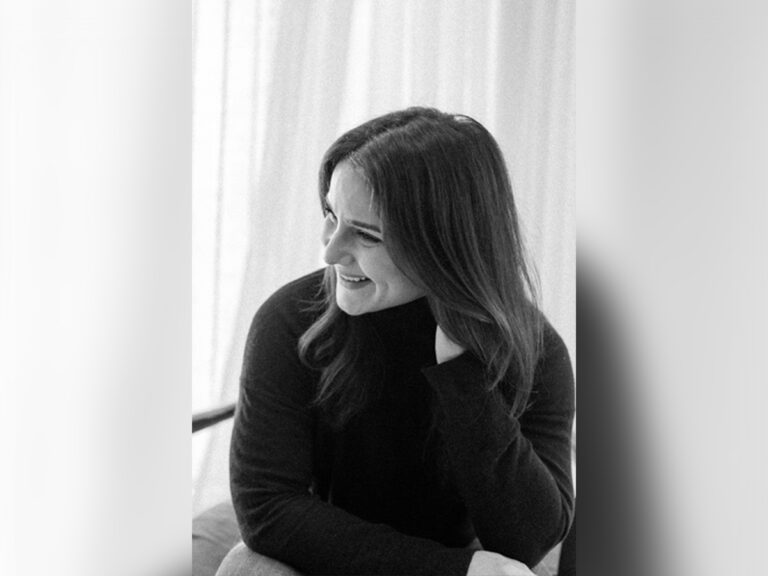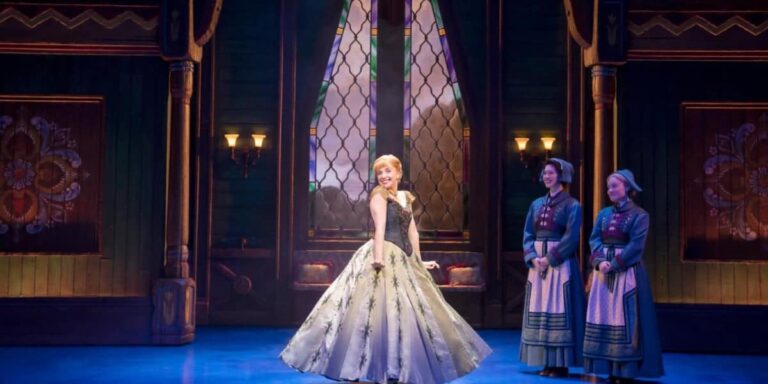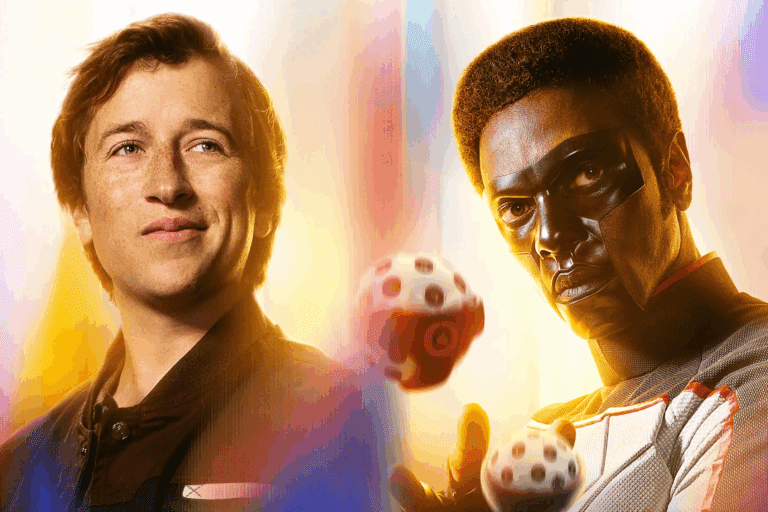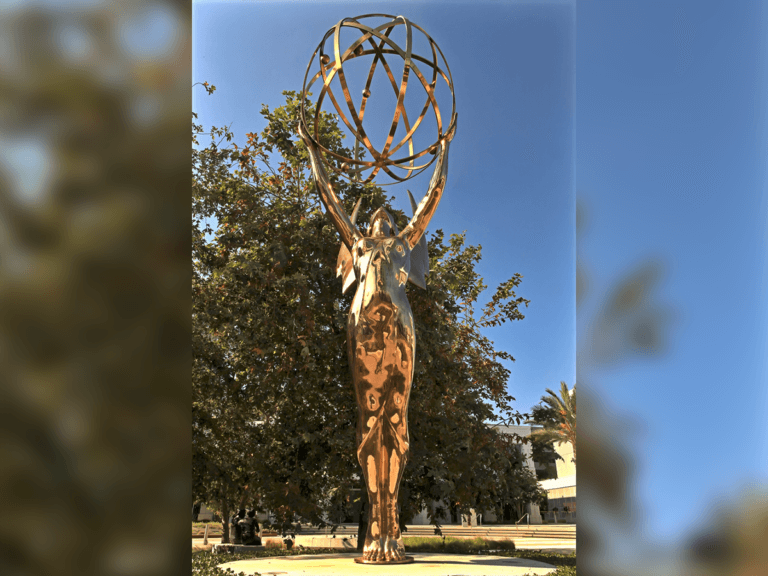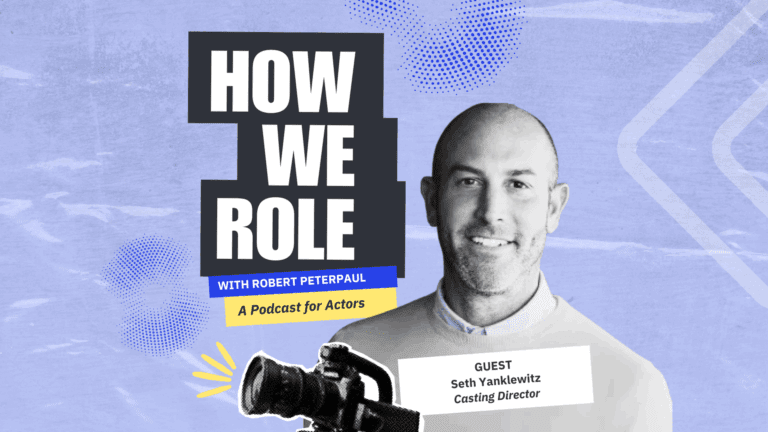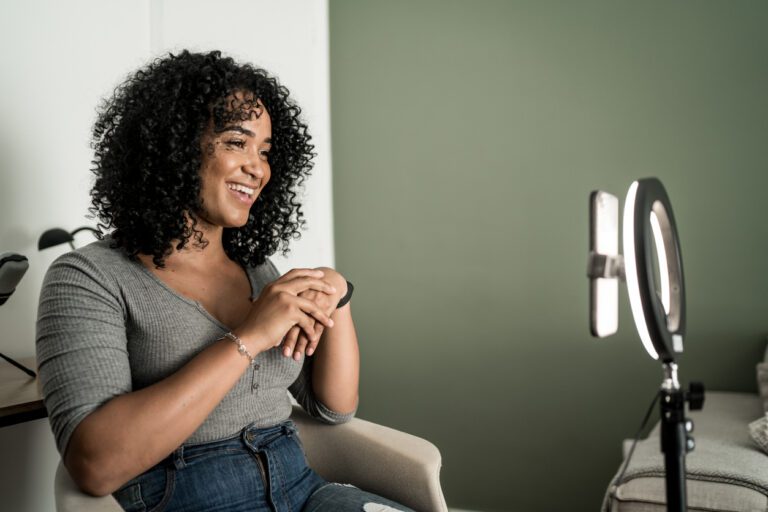Tom McSweeney and Dave Newman are the award-winning Australian casting duo behind films such as Blacklight, Love and Monsters, Dora and the Lost City of Gold, Australia Day, and TV series including The Family Law and Tidelands.
Founded in 2012, McSweeney Newman Casting has offices on the Gold Coast and in Sydney, as well as studio access in Melbourne.
We recently sat down with the team to discuss their origin story, genuine love of actors and much more!
Can you tell us about how the two of you came to join forces?
Tom McSweeney: Both Dave and I – our other love is teaching. And I kept hearing about this guy, Dave Newman, who was this amazing teacher. I’d never met him, but I kept hearing that he might be a better teacher than me. So I asked John Orcsik [of TAFTA] – when Dave is up in Queensland next, I’d like to have breakfast with him. We met for breakfast, we had a chat and I found him delightful. I said to him, ‘If the day ever comes that you’re free, please give me a call because we see things alike.’ We have the same philosophy. We love actors. We love teaching.
Dave Newman: We’d also worked on a project together, Terra Nova, so we’d got to know each other that way as well.
TMS: That’s when I knew that we saw actors in a similar vein. We really loved actors and were passionate about eliciting the performances.
DN: And we both came from acting backgrounds – let’s just say in the last century – and so being able to speak and relate to actors, and actually get the journey that actors go on, and take that into account – it helps us press buttons when we’re in auditions. We can cut to the chase but also actually speak to an actor in terms that they will understand and get that light bulb moment.
TMS: And making sure they feel they’re in a safe environment where they’re free to be creative and themselves. It’s not an inquisition. [Auditions] are samples of their spirit and their thought process.
DN: It’s also helping an actor understand that an audition can never be a final performance. It’s meant to be rough around the edges. An audition is purely an indication of where an actor may take a role. What we’re actually after is the actor’s flavor – their spice. The more an actor comes from a position of trying to give us what they think we want, they squash those things in themselves that are special or quirky or funny. Everything an actor needs to stand out is within themselves.
TMS: The other thing that has become very clear in my head in the last couple of years is that actors come into our offices hoping, one day, they get to play the part, which is completely wrong because they are playing the part today. They’ve already won. There’s nothing to lose. Whether they get to play the part again is completely and totally out of their control. But they’re getting to do the thing they love to do in front of an audience that wants them to be there. I’m not standing back going, ‘Impress me.’ I’m going, ‘Please be the one. Please solve my problem. Please be the one they’ll buy.’
Your office seems to really walk the talk with supporting emerging talent. What are your thoughts on formal actor training?
DN: At the end of the day, it’s just about performance muscles. An actor is like an Olympic athlete – the pressures and the expectations are similar. So, it doesn’t matter where they study. It just matters that their performance muscles are ready to go when that audition arrives. It’s very hard to drag it up from somewhere in the depths of Mordor.
TSM: Class is like the actor’s gym. You go to class to exercise. You go to class to experiment. You go to class to fail, to try things in a safe environment. The three-year university program is not for everybody. For some people, it stifles their creativity; for other people, it unlocks everything. But I think it’s important that you do something every day to further your craft.
DN: And that might not even be doing class. Being creative doesn’t mean just acting. Being creative could be writing, it could be painting – probably not walls – but just a creative mindset.
TMS: I tell my students – you want to practice your American accent? OK, when you wake up this morning, you’re from America. Go out in the world using your accent all day long. And when a stranger says, ‘Oh, you’re from the States?’ you know you’ve done it.
Other things actors can do that doesn’t cost money – particularly in Sydney and Melbourne where you have great public transportation – is observe human behavior. One of the things I love to do if I take the train to Brisbane is watch the people on the platform. You watch the doors open, you see them alight the train, and you watch them decide where to sit. You see all the nonverbals.
You must have now seen tens of thousands of briefs, actors and auditions. What keeps you excited about your jobs?
DN: We joke that we’re like Waldorf and Statler from The Muppets – we’ve been around a while.
TMS: Actors. That’s it. I started in this business when I was five, and I had this amazing mentor who preached that art is the only thing that defines civilization. It’s the only thing that lives on after we’re gone. It’s a very honorable profession. He said that whatever I learned, I was honor-bound to return to the next generation. One of the problems I’ve always found in this industry is people want to hide their information. Share it! Being nice is much easier than being an a**hole, and if more people were nice globally, it’d be a much better world.
DN: The greatest privilege a casting director has is being an actor’s first audience. How special is that? There’s a moment when you’re reading opposite an actor, and they just break your heart in a glance. There are those moments when an actor – without even realizing – reaches into your soul and grabs something. Nothing beats that. It makes all the ‘downsides’ of the job worthwhile – when an actor touches your soul in a moment of pure honesty and beauty.
Have you spotted any common threads in actors you’re always happy to call in and who work consistently?
TMS: The light behind their eyes.
DN: Yeah, and openness. They’re like a sponge. They’ve retained the ability to listen – not just to us, but to the reader. When actors get nervous, that’s one of the first things that goes out the window. That, and the ability to be brave enough to respond honestly.
TMS: Actors are the worst judge of how [an audition] went. And the interesting thing about auditions is you can be riveting in the room, and then you go and watch the tape and it’s not there. Or they can feel flat as a pancake in the room, and then you watch it and it’s magic. Or they’re lousy in the room and lousy on the tape, or amazing in the room and amazing on the tape. You never know until you see the tape, but the camera captures every truth and exposes every lie. You can’t fool the camera. It’s the most important tool that an actor needs to learn how to use. Make the camera work for you. Don’t be afraid of it. It’s your best friend.
DN: No one’s harder on an actor than themselves. Every good actor we know is a perfectionist. So, that leads to a lot of actors who are great once they’ve got the gig, and it leads to a tumultuous audition experience for them. There’s so much in an audition that an actor needs to let go of, and if they’re brave enough to do that, then we usually get a really great result – even if the actor thinks it was a six-car pile-up on a highway after a tsunami during an earthquake and a blizzard.
And I guess one thing we’re talking about more now is the mental health and well-being of actors. In a 40-year career, they’re going to have days where they lose the love – the number of knockbacks is going to feel insurmountable. They spend their whole career inspiring the general public, but if they’re not taking the time to find inspiration for themselves or they’re running on the smell of an oily rag, that’s when we need actors to take a break. If they can find that, then they’ve got that gift to give to the rest of us. My advice to actors is to look after the human first because the human will look after the actor. But I guarantee you the actor isn’t going to look after the human very well.
–
Special thanks to McSweeney and Newman for their time. We recommend checking out the fantastic selection of resources on their website and keeping an eye on their Facebook page for upcoming open calls.
There are plenty of strike-compliant roles available on Casting Networks. Sign up or login and see what’s casting near you today!
You may also like:


